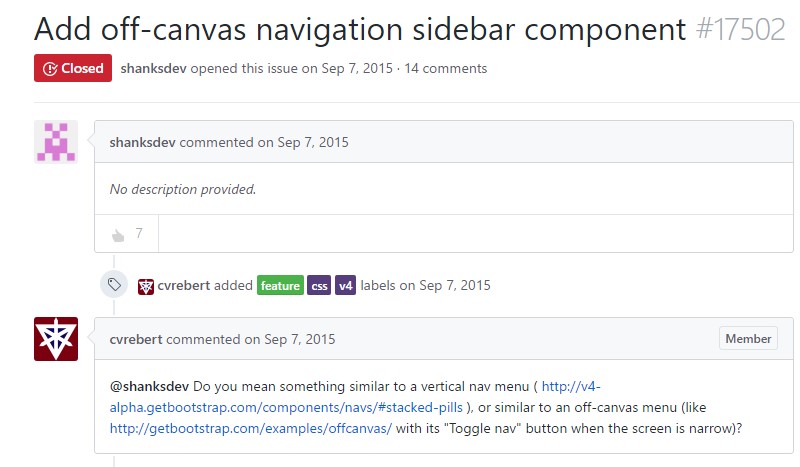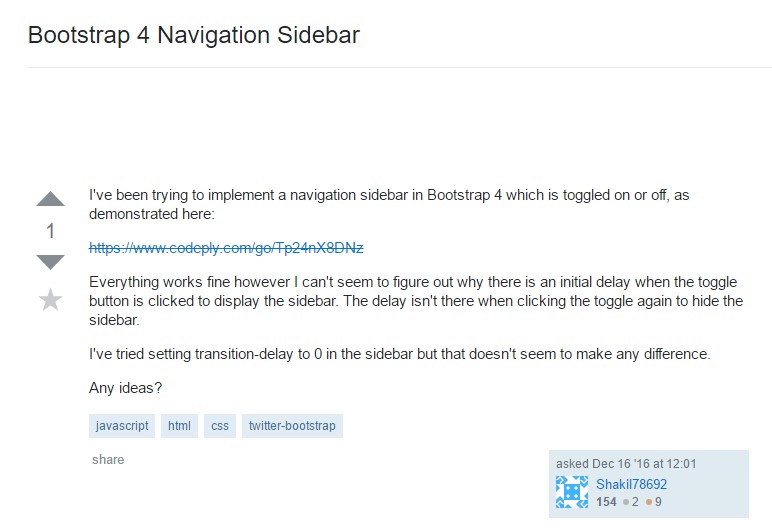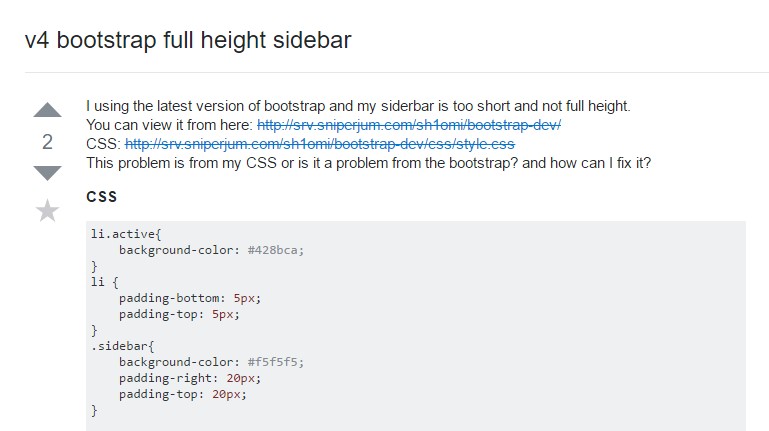Bootstrap Sidebar Example
Introduction
Around the majority of the pages we just recently spot the content stretches from edge to edge in width with a handy site navigation bar above and simply just conveniently gets resized once the specified viewport is reached so that somewhat the showcased content fluently employs the full width of the web page accessible. Even so at a particular events the wanted target the web pages ought to provide require along with the fluently resizing content area an additional component of the provided display width to get selected to a still vertical component together with certain hyperlinks and content in it-- in other words-- the popular from the past Bootstrap Sidebar element is wanted.
Tips on how to use the Bootstrap Sidebar Example:
This is pretty old technique but in the case that you certainly need to-- you can certainly build a sidebar feature with the Bootstrap 4 system which in turn in addition to its flexible grid system also deliver a several classes designed especially for establishing a secondary rank site navigation menus being simply docked around the page.
But why don't we set up it quick-- with simply nesting some columns and rows -- It is supposed this perhaps the best way. And also by nesting I indicate you can surely gave a .row feature placed inside a column one-- it typically acts the identical approach with the exception of the provided columns in a single line limit-- in the case that you nest a row inside a column you are able to have up to the column's width reaching inner columns inside it before they wrap to a new line.
And so let's say we desire a right coordinated Bootstrap Sidebar Menu along with several web content within it and a primary web page to the left of it. We have to establish the grid tier down to what we want to keep this alignment prior to the sidebar and the primary material stack over each other-- let's say-- medium and up. And so a workable way reaching this might be this:
First we need a container component to hold the rows and columns and considering that we are certainly creating something a little bit more complex the .container-fluid class might be the best one to select it to-- in this way it will definitely regularly spread over the entire detectable width available.
Next we need a .row to wrap the primary structure into which in our case would certainly be a large column for the information and a smaller sized-- for the sidebar-- let's say we'll break up the width in 9 by 3 columns in width. In such manner the primary column element really should carry .col-md-9 and the 2nd one - .col-md-3 class employed.
Next within these particular columns we are able to just create some excess .row features and pack them up up with a number of material creating 1st the main page and after it-- the components of the sidebar the same as two smaller webpages laid out side by side.
A number of extra tips
Additionally in case you need to create a sidebar navigation menu along with the desired .col-* class you can assign it the .sidebar class and wrap the page’s main content into a <main> element applying it the rest width with a .col-* class and appropriate offset equal to the sidebar’s width to make the nicely display side by side.
Also in case you need to create a sidebar navigation menu together with the desired .col-* class you have the ability to appoint it the .sidebarclass and wrap the page's primary content into a <main> element adding it the rest size by using a .col-* class and proper offset equal to the sidebar's width to get the nicely display side by side.
Inspect some video clip short training regarding Bootstrap sidebar
Linked topics:
Incorporate off-canvas navigation sidebar component

Stackoverflow: Bootstrap 4 Navigation Sidebar

V4 Bootstrap full height sidebar

CSS3 Bootstrap Dropdown Menu Examples
CSS3 Bootstrap Toggle Menu Compilation